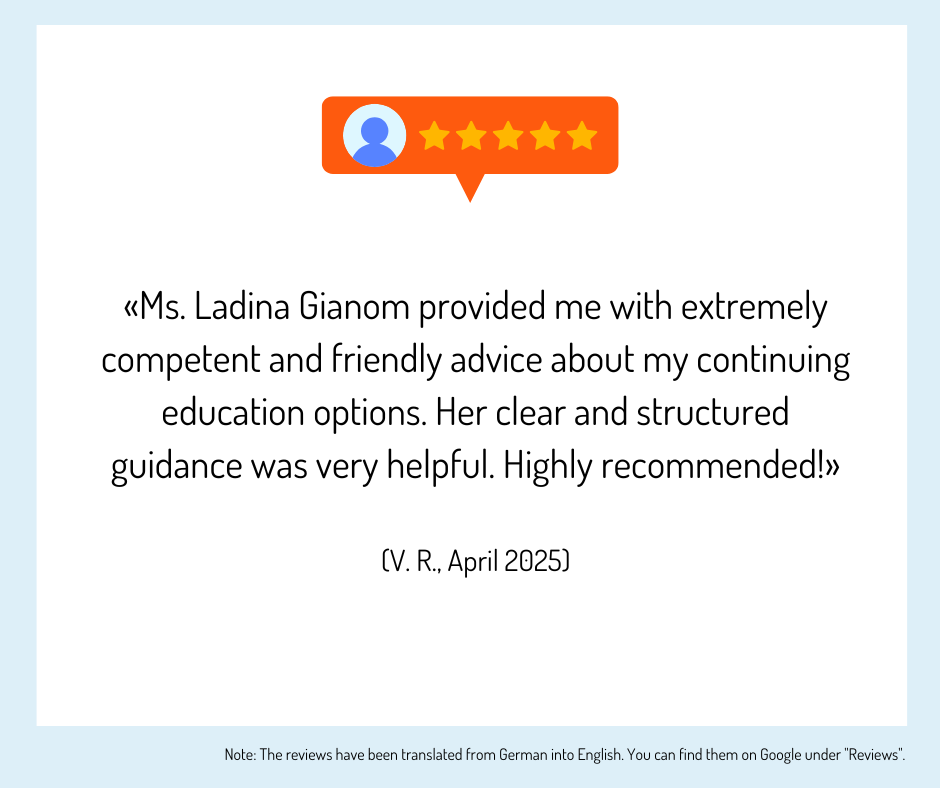Integrative kinesiology: training, courses, information and schools
Integrative kinesiology: For professional application in practice, sound training is essential.
Questions and answers
When is integrative kinesiology used?
Integrative kinesiology can be used in a wide variety of situations, whether physical, emotional or mental. It is used for muscle tension and pain, intolerances and allergies, coordination disorders, digestive problems, overload and weight problems, anxiety and burnout, mood swings, relationship problems, feelings of stress, sleep disorders and psychosomatic complaints. Kinesiology can also help with concentration problems and learning difficulties, lack of energy and self-esteem problems, motivation problems and delayed development.
Do participants in integrative kinesiology training need to have previous kinesiology experience?
For many continuing education, further training courses in integrative kinesiology, participants are expected to already have a basic knowledge of kinesiology, but this is not necessarily the norm for training courses. For these, an introductory course is often offered, which interested parties attend in order to gain initial basic knowledge. However, please always contact each individual kinesiology school to find out the exact basic requirements for admission, the easiest and quickest way being via our contact form.
Can participants continue to work during the integrative kinesiology training?
It is generally possible to continue working while training in integrative kinesiology. The training usually takes place at weekends or on one full day per week, at some schools weekly, at others only every three weeks. However, the training is not a full-time course, which means that you do not have to reduce your working hours, or only partially.
What topics are covered in integrative kinesiology training?
Training in integrative kinesiology provides in-depth knowledge in various areas of physical, emotional and mental health. The content depends on the respective training objectives and can be weighted differently depending on the school and degree. The following is an overview of possible topics, such as those taught in a three-year kinesiology course:
- Fundamentals of kinesiology: introduction to concepts, test methods and areas of application
- Five elements of Chinese medicine: connections between emotions, organs and energy flows
- Chinese medicine: basic knowledge of meridian theory and energetic connections
- Interviewing and communication: techniques for empathic and goal-oriented work with clients
- Stress regulation and emotional balance: methods for identifying and processing stress patterns
- Goal work and value clarification: activating resources through solution-oriented work
- Pulse test and diagnosis: diagnostic tools for assessing energetic conditions
- Therapy planning and concepts: development of individual session schedules
- 14 muscle tests (14 MTs): Testing and interpreting energetic imbalances
- Psychological foundations: understanding emotional processes and developmental issues
- Integrative methods: combining psychological work with kinesiological techniques
Chakra work and energetic balance - Professional identity and ethics: reflecting on your own role and responsibility in everyday practice
Posture analysis and reactions of the musculoskeletal system - Special techniques: reactive muscles, accident recall techniques, emotional decoupling
- Nutrition and food: effect on the energetic balance
- Kinesiology for children and animals: Specialized application methods
- Cooperation with medical professionals: Interfaces and legal aspects
Practice management, insurance and legal framework - Practice development and quality assurance: supervision, case work and continuing education, further training
- Risk management and client safety: working responsibly in practice
Competent handling of challenging topics
These topics form the basis for holistic kinesiological support. Depending on the school, additional content or in-depth modules may be offered during training in integrative kinesiology.
Important: The specific learning content of the training in integrative kinesiology can vary from school to school. Each educational institution sets its own priorities and specializations. It is therefore advisable to enquire about the exact curriculum directly with the respective school. A contact form is available for easy clarification. The question can then be forwarded directly to the school in question.
What is integrative kinesiology?
Based on the assumption that people's mental and physical states are also reflected in their muscles and their function, the American chiropractor Dr. George Goodheart developed a test procedure to assess muscle function, the muscle test. In kinesiology, Goodheart combined traditional Chinese medicine with holistic Western medicine, which was further developed in Switzerland in the 1980s by Rosmarie Sonderegger. This gave rise to Integrative Kinesiology, which combined Goodheart's approaches with C. Rogers' talk therapy. In this way, a positive change is to be brought about in cooperation with the patient, which he or she must initiate independently. It is therefore necessary to first take a closer look at the current situation and look for the cause. It is determined what the patient wants to achieve and a new orientation is defined. Building on this, kinesiological energy balancing is then carried out as the basis for behavior that promotes success.
Experiences, evaluations and opinions on training / further education
Haven't found the right training or further education yet? Benefit from educational advice now!
Further training is not only important in order to maintain or increase professional attractiveness, investing in training or further training is still the most efficient way to increase the chances of a pay rise.
The Swiss education system offers a wide range of individual training and further education opportunities - depending on your personal level of education, professional experience and educational goals.
Choosing the right educational offer is not easy for many prospective students.
Which training and further education is the right one for my path?
Our education advisory team will guide you through the "education jungle", providing specific input and relevant background information to help you choose the right offer.
Your advantages:
You will receive
- Suggestions for suitable courses, seminars or training programs based on the information you provide in the questionnaire
- An overview of the different levels and types of education
- Information about the Swiss education system
We offer our educational counseling in the following languages on request: French, Italian, English
Register now and concretize your training plans.

Immediately to the right training
Attraktive Services für Swisscom Mitarbeitende
Kostenlose Services
» Bildungsberatung (Wert: CHF 150.–)
Bildungs- und Businessratgeber (Wert: CHF 175.–)
» Rabatte
Attraktive Rabattierungen seitens der Bildungsanbieter.
» Massgeschneiderte Bildungsangebote
Ohne grossen Zeitaufwand den besten Trainer, Coach oder Schulungsanbieter finden
Bildungsangebot Schweiz
Aus über 700 Bildungsanbietern das richtige Bildungsangebot finden



